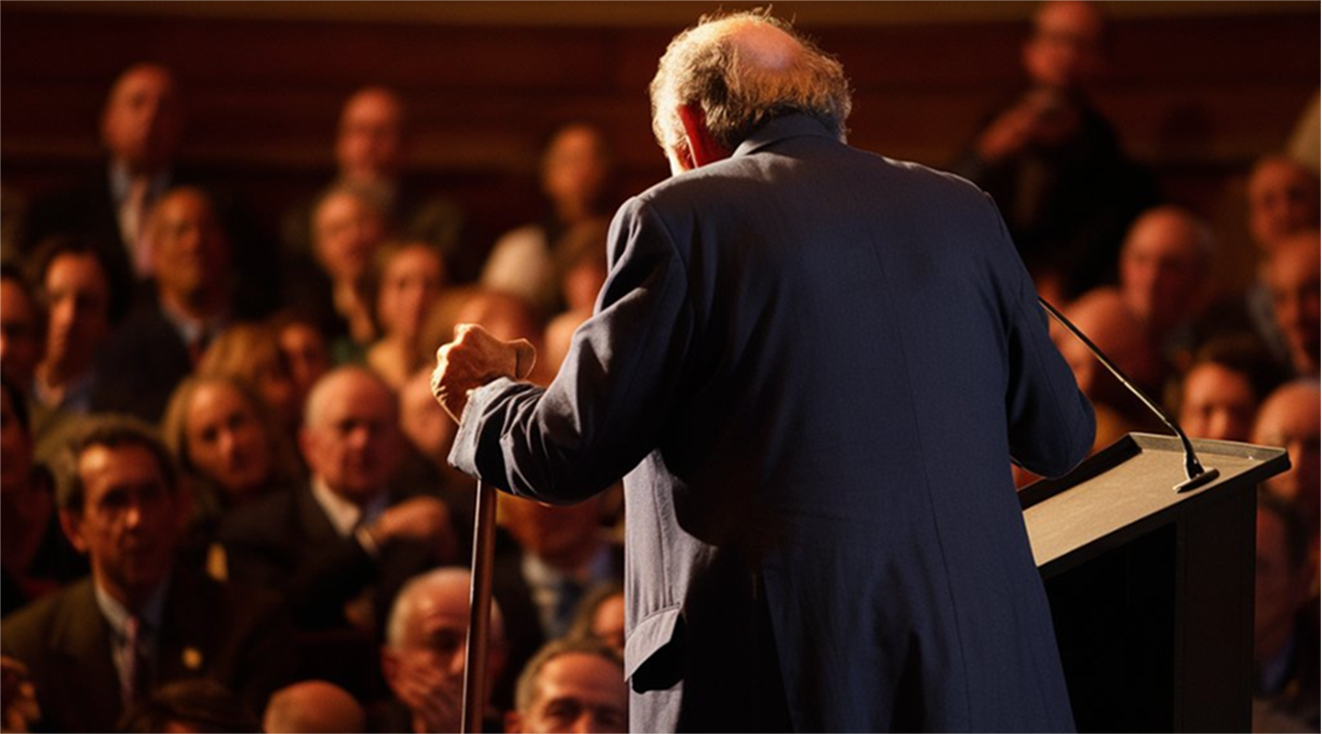The surreal and ultimately tragic debate between Trump and Biden, with the frailties of old age on pitiful display, raises the thorny question of how old is too old. Not just to be the leader of the free world, but in any human endeavour.
Elite athletes usually peak between 25 and 35 (depending on the sport), although some may beat the odds into their 40s (plus a few rare outliers into their 50s, like surfer Kelly Slater). Mathematicians tend to peak in their 20s. Other scientists may peak later, but generally not beyond their 40s.
According to a study by Professor Dean Keith Simonton of UC Davis, even writers and poets (where the wisdom gained from experience seems to be a requirement) generally have their best work behind them by the end of their 30s in the case of poets and, for writers, by the end of their 40s. The average age of those who made discoveries that led to Nobel Prizes in medicine, physics and chemistry? Around 40. Most CEOs of successful companies (bar Buffet and Munger) start packing their bags in their early 60s.
But not politicians, especially not those at the top.
So, who is operating at their best in their 70s and 80s? Well, no one, obviously. So why is it that so many leaders of some of the most complex societies on Earth are, well, anywhere from simply elderly to doddering? Trump (78) and Biden (81) in the US. Ramaphosa (71) and Zuma (82) in South Africa. Modi in India (73), Xi in China (70), Putin in Russia (71). Worse still, the subjects over which these ancients rule are so much younger — 62% of humans are under 40.
These leaders belong to an age cohort that comprises less than 10% of the human race. “Out of touch” is the phrase that comes to mind. How much does Trump or Biden or Xi or Ramaphosa know about the average 21-year-old — not least his or her hopes and aspirations and expectations of a government?
Before democracy raised its naïve and enthusiastic head in the 18th century, old leaders were the rule. Monarchs, emperors, chiefs, popes and ayatollahs. They tended to stick around until they died. Ruling over a genuflecting and often fearful underclass tended to be a rather interesting way to spend a life, even a fun way, I suspect.
No one, it seems, least of all the boss, was fazed by memory lapses or mid-sentence freezes.
I suppose old habits die hard. Older means wiser, right? Our parents, those familiar fonts of wisdom, are our first exposure to the authority of age. Then we have school teachers and professors. Then doctors, for a while anyway. Many of us grow up looking up to our elders; it is a cultural norm, part of our understanding of who knows best, even when their sell-by date is long past.
Biden shock
And so it was a shock to watch Biden lose the solid reputation of a lifetime in the course of an hour or so. He got stronger towards the end of the debate, but the first 15 minutes unravelled his well-earned authority and successful political career, at least in the eyes of most of those who watched.
This debate may be all people remember about him.
A charge could be made that this whole question of age and (in)competence smacks of ageism. Which, of course, is valid. Your correspondent is no longer a young man, and I have occasionally felt the jagged edge of age-related assumptions as the decades have mounted. But surely the stewardship of a country requires the deepest and sharpest of skills — leadership, strategic nous, the ability to analyse, synthesise and act on a huge amount of disparate information, from local news to science to economics to geopolitics.
Of course, it is also true that younger leaders have not always been much better at the job. We currently have the soon-to-be-ex-leader Rishi Sunak in the UK, the young and untested Meloni in Italy, a deeply unpopular Macron in France and an unpredictable and impulsive Milei in Argentina. I would argue, however, that younger leaders who fail do so because their policies do not successfully address the challenges facing their countries, not because their cognitive faculties are withering, which is certainly the case with Biden (and with Trump, if anyone cares to listen to the incoherent gibberish that pours out of his mouth at his rallies).
It could be argued that the old men (only 28 out of 193 countries are led by women, and they skew younger) need only be good delegators — choosing younger and sharper lieutenants to do their bidding. I don’t buy this argument. I have worked in corporations where older leaders have sclerotised the progress of entire projects with their obstinacies and arrogance, and such is probably true of many of these older politicians too.
In any event, it seems tautological that a country deserves a leader who is at the top of their game, not one who is there because of their familiar face, their loud voice or even their past glories.
Clearly, countries do not always get what they deserve. DM
Steven Boykey Sidley is a professor of practice at JBS, University of Johannesburg. His new book, It’s Mine: How the Crypto Industry is Redefining Ownership, is published by Maverick451 in SA and Legend Times Group in the UK/EU. It’s available now.
Daily Maverick’s journalism is funded by the contributions of our Maverick Insider members. If you appreciate our work, then join our membership community. Defending Democracy is an everyday effort. Be part of it. Become a Maverick Insider.





